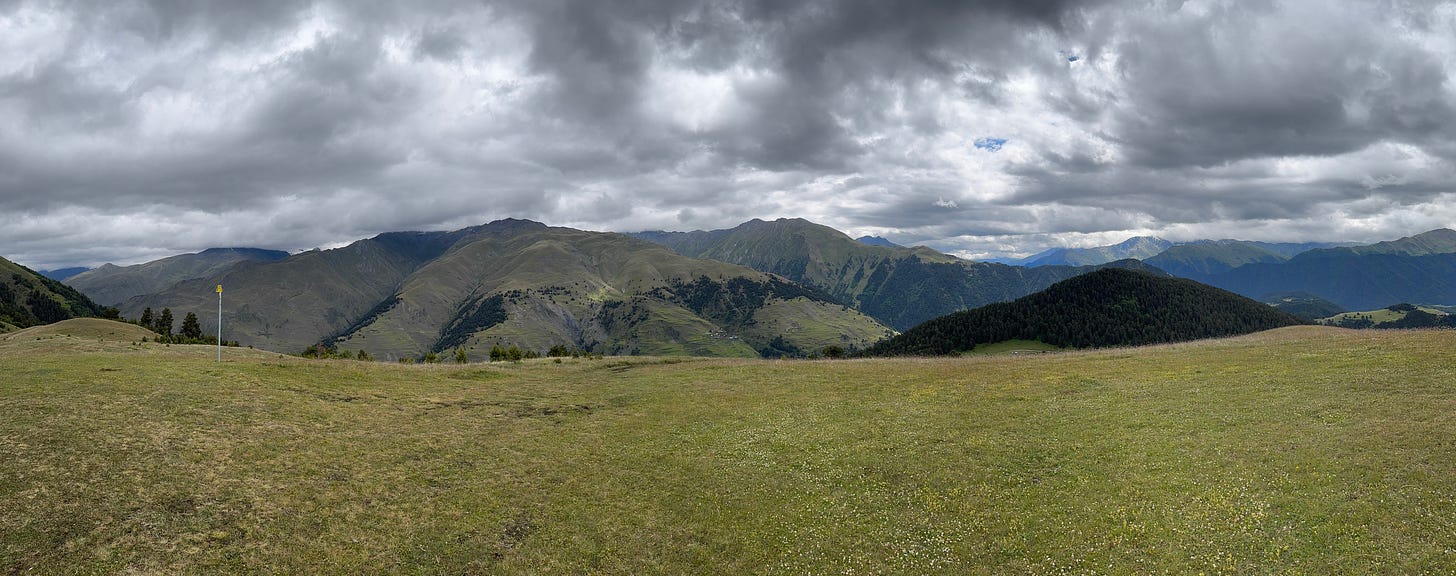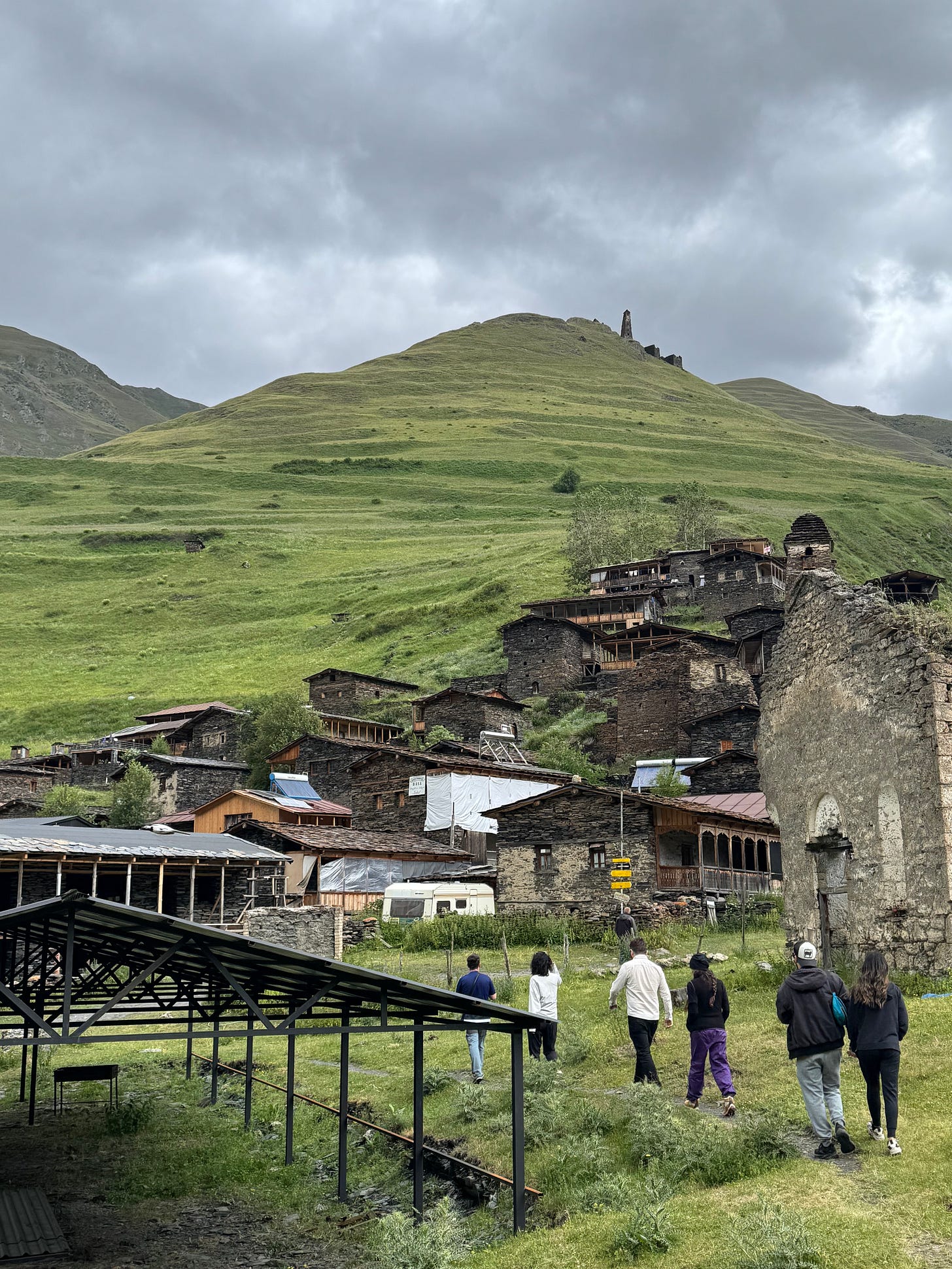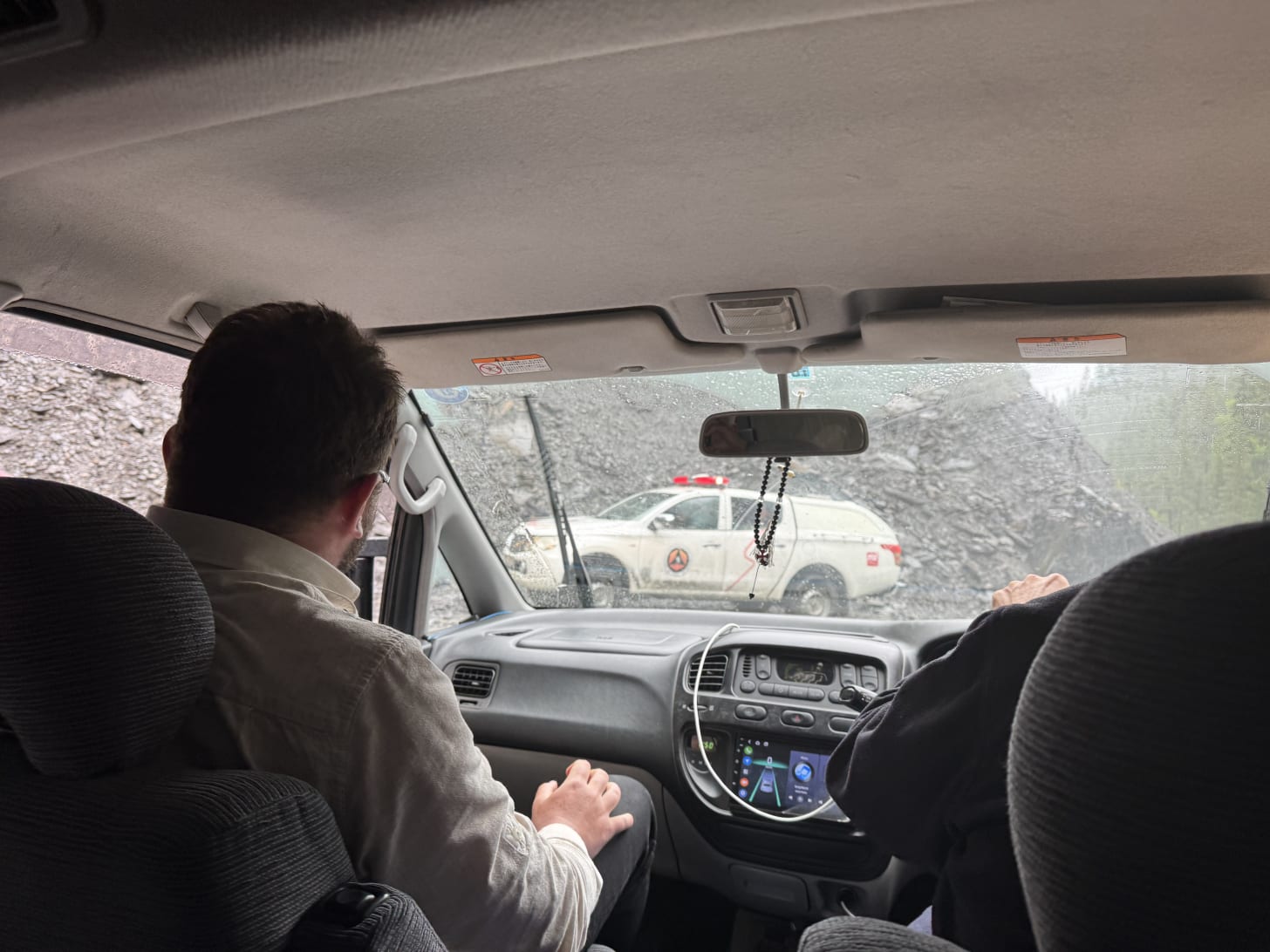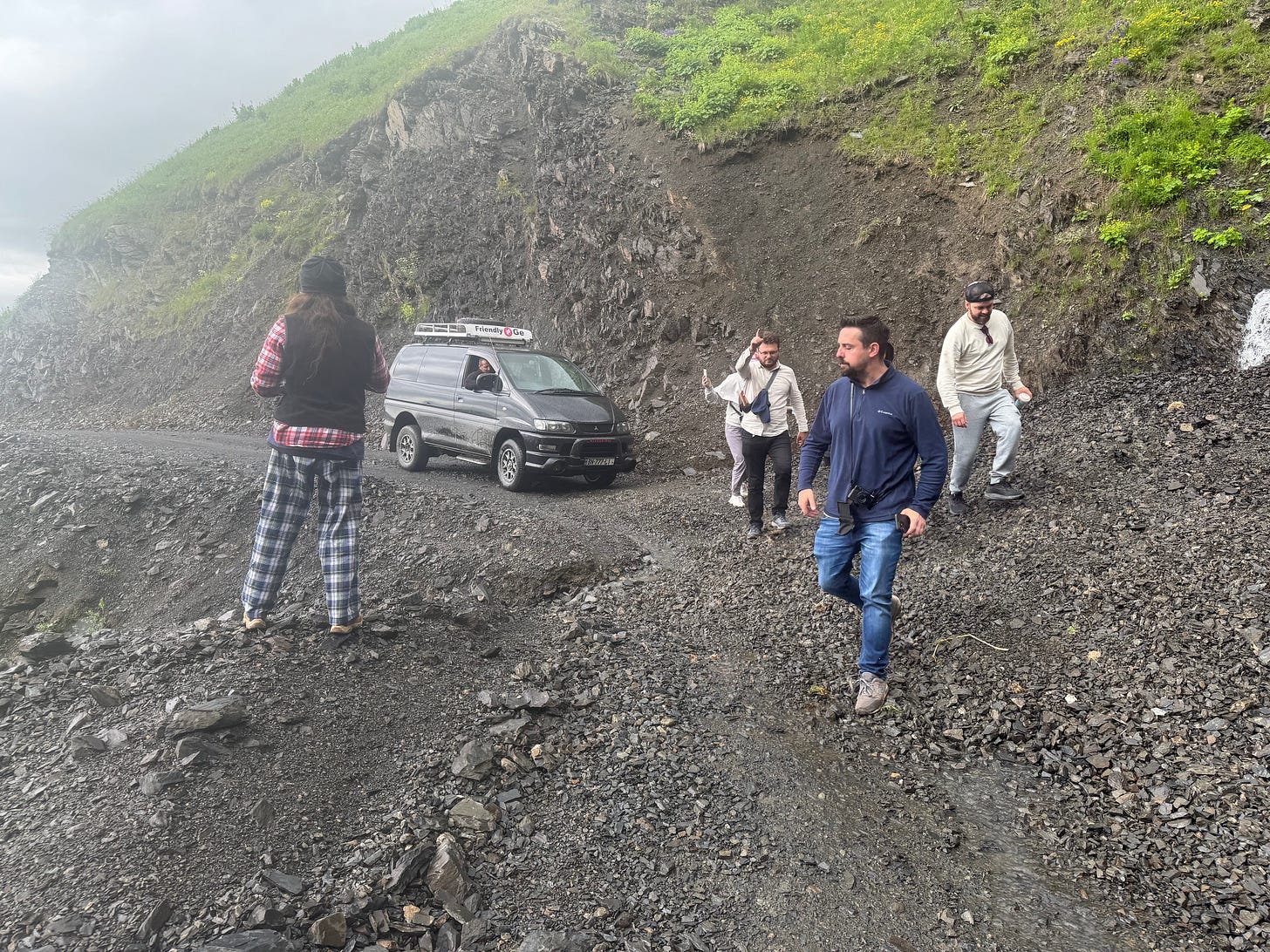Omalo, a village in the remote Tusheti region in the Republic of Georgia, was our starting point on the day’s travels and where we’d spent the past two nights. Population: 37. Elevation: 6,170 feet.
“We’ll stay in our guesthouse until it’s safe to travel. That won’t be today. If we’re lucky, it will be tomorrow.”
No one expresses concern or disappointment. Just hours ago, we’d been referring to Tusheti as “paradise.” So now we’d simply have more time in paradise. Admittedly a cold, wet, isolated paradise, but paradise nonetheless. Omalo is a thriving metropolis of about 45 people, but we’ll be safe and warm. Or at least safer and warmer.
In any case, we were operating on what we’d come to know as GMT–Georgia Maybe Time.
Our group of six clients, one guide and one driver has bonded over the past days: a young woman from South Korea, another from the US, an Icelandic guide and farm worker (beau of young woman #2), a Spaniard living in Scotland, my Florida friend Kathi, and I.
The ride down from Daji’s to Omalo is jarring–what we’ve come to call a “Georgian massage.” The vibrations could pulverize kidney stones, I share jokingly with the group. Or turn hemorrhoids into explosive devices, an image I opt not to share.
In just the few hours since our climb to Daji’s, rainwater has deepened the ruts in the dirt roads. At various points, the roadway’s edge has collapsed into the torrents far below. The distance between the cliff wall and the dropoff has narrowed to what feels like barely the width of our van.
Jonah keeps wiping the windshield, but the dense fog reduces our view to barely 15 or 20 feet. I spend some time considering whether this is a good thing or a bad thing: Do I want to know I’m about to plunge to my death, or would I prefer my demise to be more of a surprise?
Jonah had already told us to keep our seatbelts off. We’d stand a better chance of getting thrown clear if the van tumbled off the cliff. Again, I ponder whether this would be a good thing or a bad thing.
Occasional abject terror aside notwithstanding, Davit is a great driver. Not only does he navigate the road with confidence, but he also calms us when he occasionally turns and smiles.
Great, Davit, but please keep your eyes on what’s left of the road.
Occasionally, the fog clears, and we can look to the swollen river far below. What had been blue-grey water the day before is now brown, cloudy with silt. Huge tree limbs bob in what have become massive rapids. When we pass through a waterfall, Jonah jokes that it’s a “Georgian car wash.”
We round a bend and are confronted with perhaps 100 feet of roadway that is indistinguishable from the river that had been beside it. A river so wide that the locals refer to it as a lake even when there’s no flood. Three hours earlier, it had been clear. The waters were rising fast over the roadway.
Jonah and Davit step from the car to gauge the situation, then climb back in.
“We’re not worried that much about the depth of the water,” Jonah explains. “It’s more whether any of the road has broken away into the river, and we can’t see it.”
Davit turns to us, smiles and puts the van in gear. We inch across, with our intrepid driver tapping years of experience to sense the strength–or mere existence–of the roadway under our front wheels.
We cheer when we make it to semi-solid ground, praising and thanking Davit for keeping us alive.
A few bends in the road later, we come across a small rock slide. Jonah and Davit exit again and clear a path.
In a somewhat comforting deja vu moment, we soon arrive at the guesthouse we had left several hours earlier.
Jonah confers with our host, and we return to our same rooms, made up for the next guests, themselves stranded on the far side of the missing roadway. Due to the lack of sunlight, there’s no solar power, and the house is operating on batteries. That means no hot water and no heat. But at least we’re inside.
Our host prepares a hearty dinner, which we enjoy before retreating to our rooms. I promptly bundle myself into bed.







